#Soviet Fairy Tale
Text

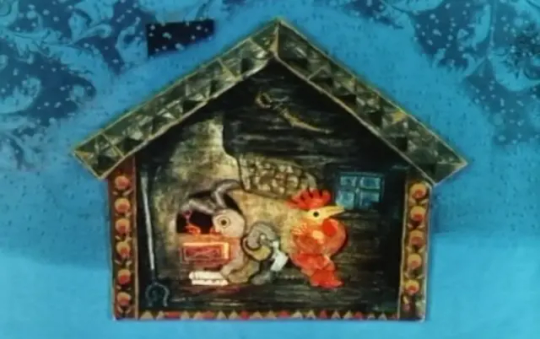
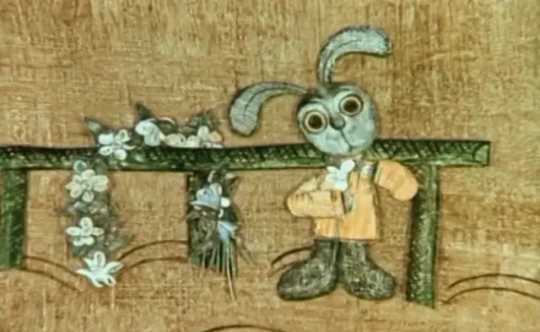

"The Hare and the Fox", cartoon by Yuri Norshtein and Francheska Yarbusova (USSR, 1973)
691 notes
·
View notes
Text

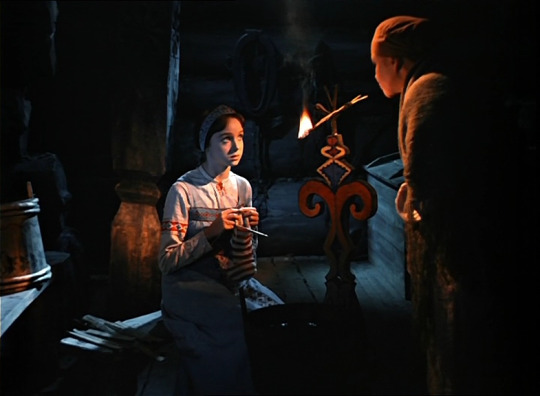


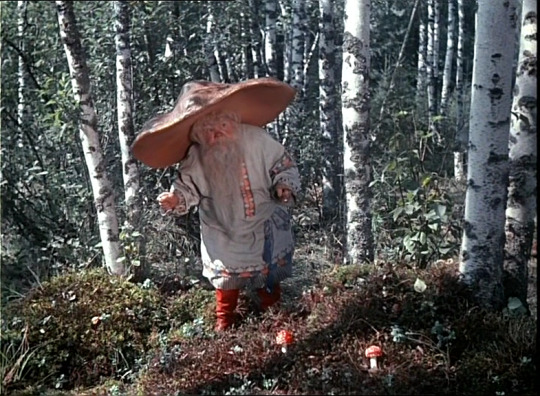

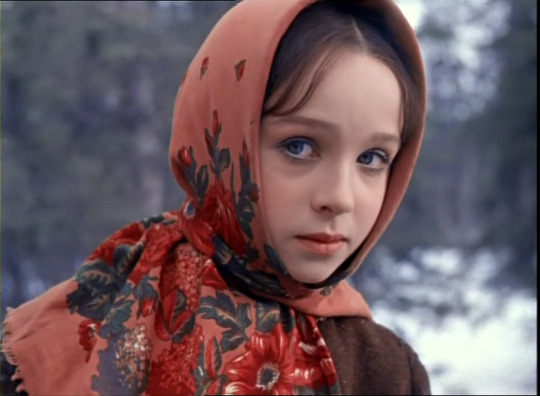
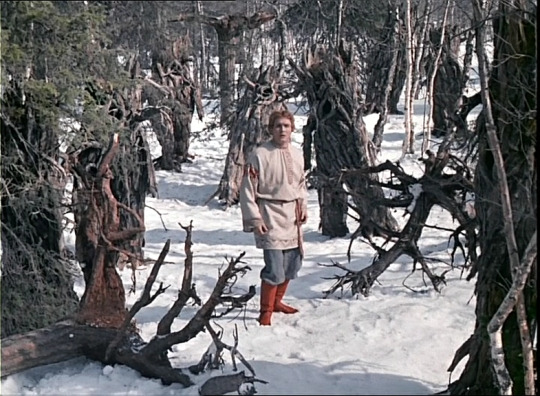
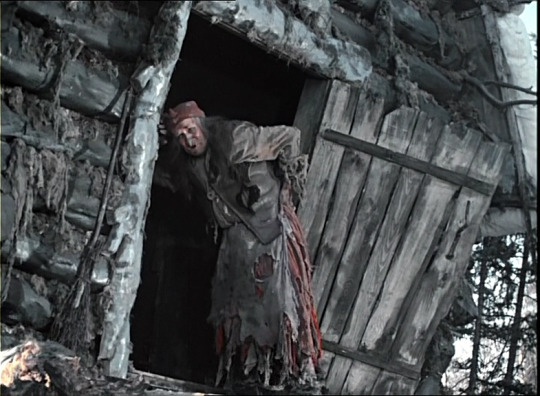
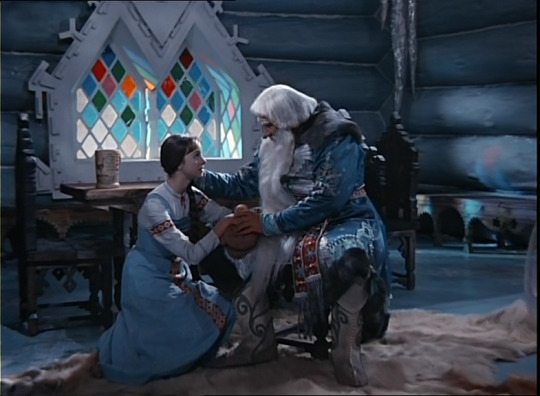

Morozko (Морозко) - Alexandre Rou - 1964 - Soviet Union
#morozko#alexandre rou#1964#60's#60s cinema#russia#soviet cinema#fairy tales#christmas#merry christmas#christmas 2023#baba yaga
167 notes
·
View notes
Text
Фильм: Алиса в Зазеркалье

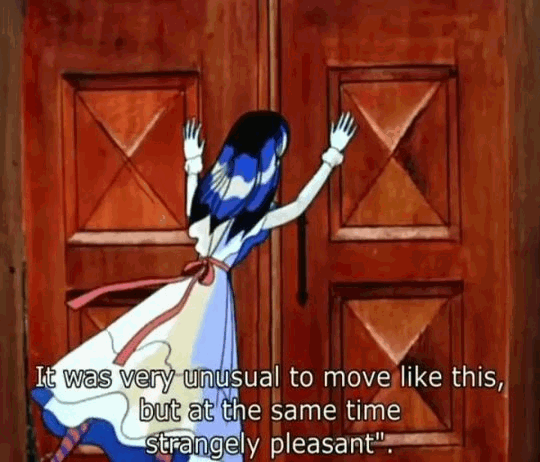
#film#daisies 1966#soviet animation#soviet cartoons#soviet cinema#slavic#slavic cinema#fairy tales#russian cinema#80s nostalgia#60s 70s 80s 90s#алиса в стране чудес#alice in the wonderland
332 notes
·
View notes
Text
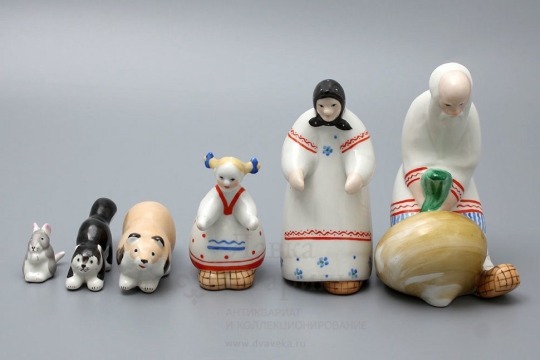

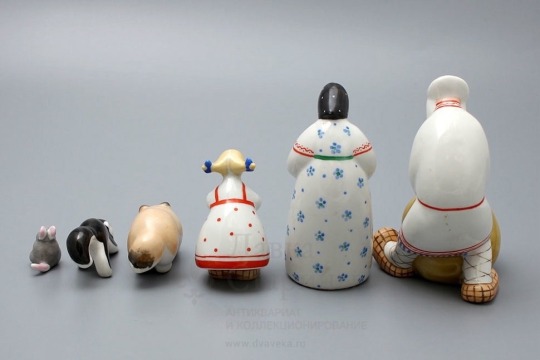
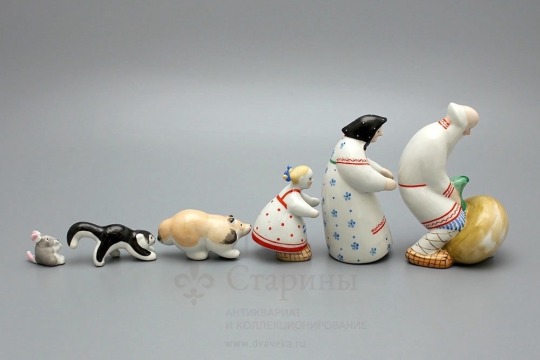
The Enormous Turnip by Nikolai Ivanovich Rozov (1918 - 1994)
46 notes
·
View notes
Text
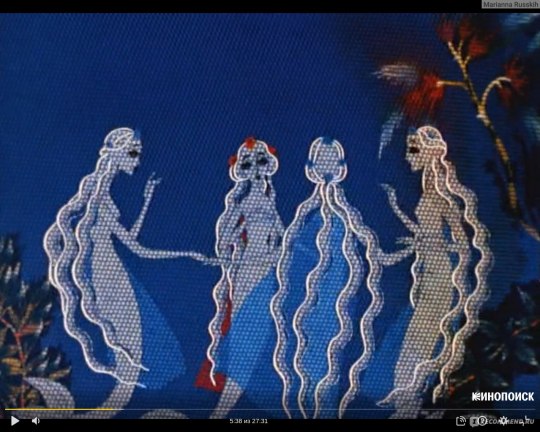
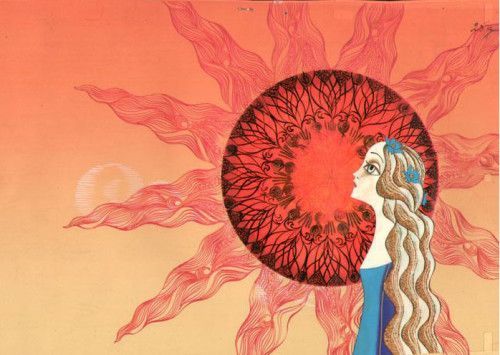
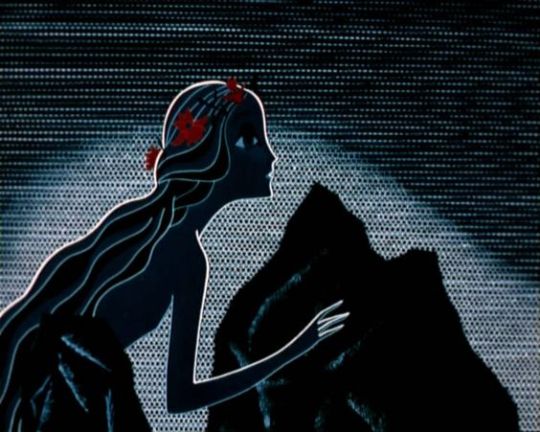
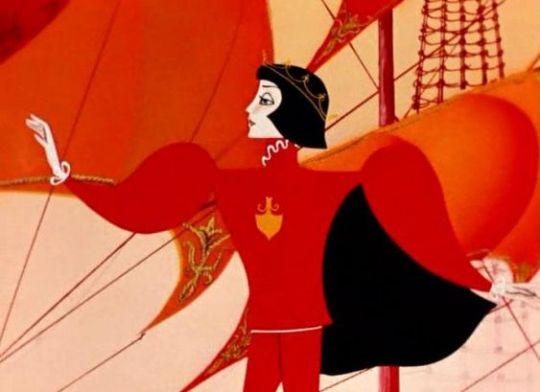
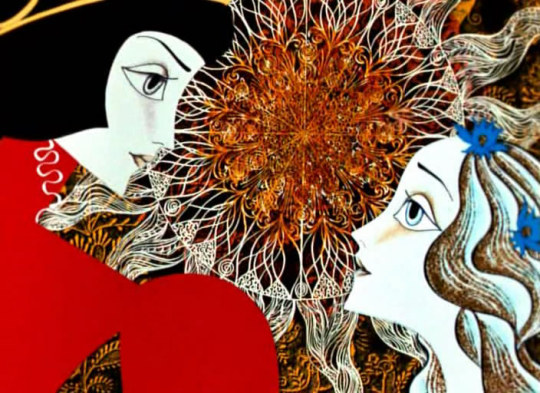
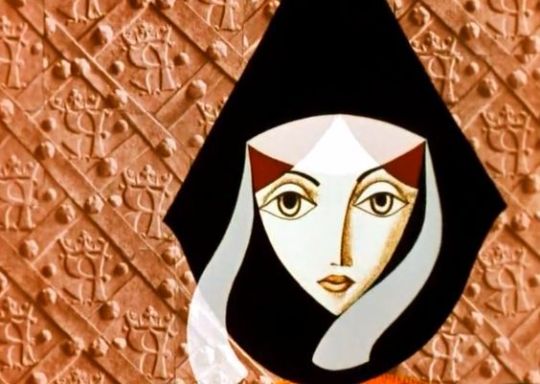
The Little Mermaid (1968)/The Little Mermaid (1968)
#мультфильмы#советские мультфильмы#русалочка#cartoon#soviet cartoons#the little mermaid#fairy tales#Hans Christian Andersen
23 notes
·
View notes
Text
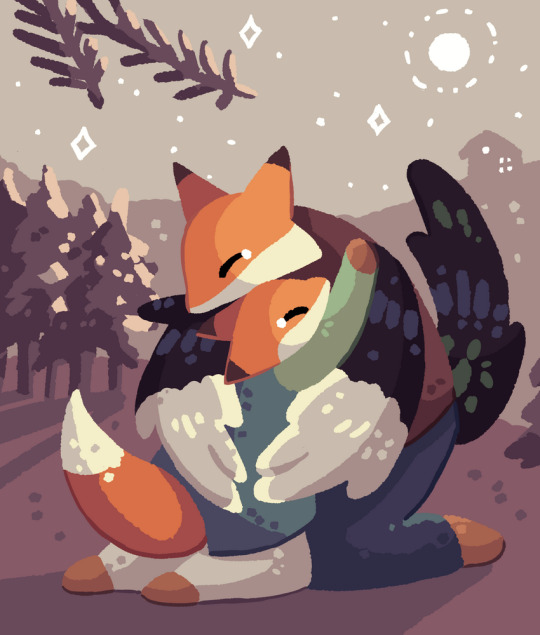
Folktale week 7: Found
This one is very loosely inspired by The Wild Swans, by Hans Christian Andersen (and also a call back to day 1: Lost, of course~)

#mydrawings#MyCharacters#AND THUS CONCLUDES#Folktale Week#HOPE YOU ENJOYED IT#this is my favourite illustration of the bunch so i'm glad we're ending on this note :D#you didn't think i would let that little fox have a bad ending did you#(this started as me wanting to draw some of my OCs in this style but. now i actually kinda want to develop these characters as their own)#anyway when i was a child i had a VHS of a 1962 Soviet animated movie adaptation of the Wild Swans#which?? not sure how this happened??? i'm guessing my parents must've recorded it from the TV once??#i haven't seen it again in forever but it definitely left an impression#and in Andersen's fairy tale it's mentioned that the youngest brother who was turned into a swan doesn't fully turn back#one of his arms remains a wing
28 notes
·
View notes
Text


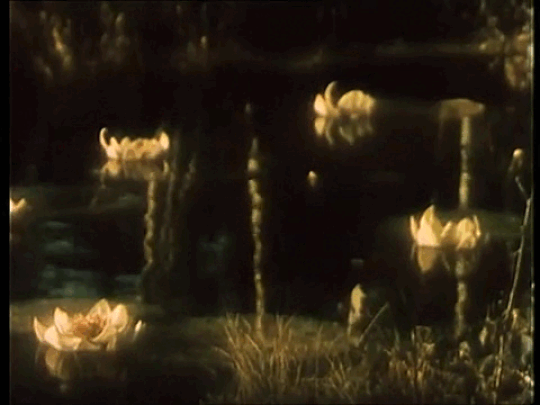
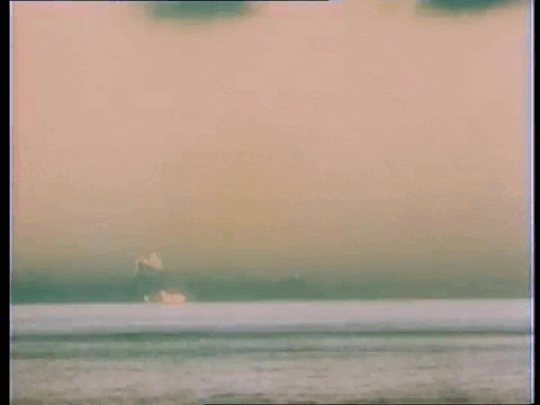

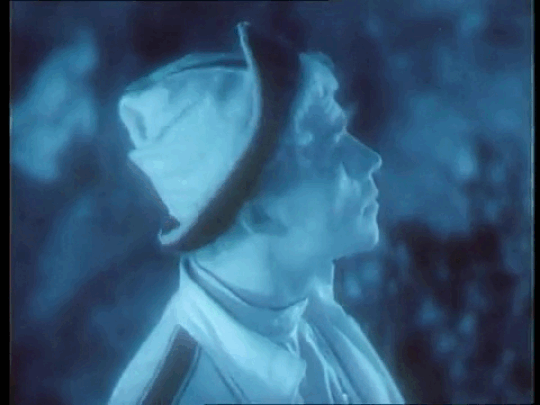
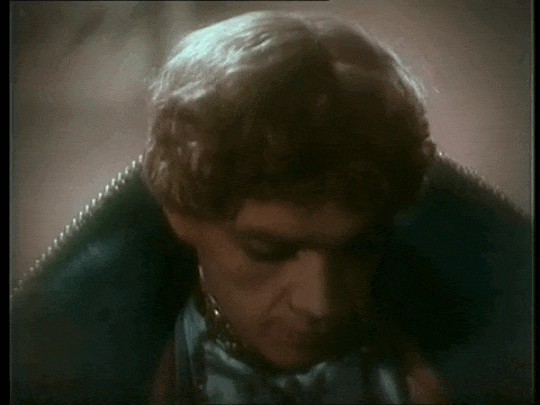
Aleksandr Rou, {1941} Конек-Горбунок (The Humpbacked Horse)
#film#gif#aleksandr rou#Конек-Горбунок#the humpbacked horse#1941#fairy tale#animals#swans#horses#moon#colour#soviet union#soviet cinema#people#feature length#cccp#1940s#male filmmakers#fish#blue#landscapes#seascapes
33 notes
·
View notes
Photo
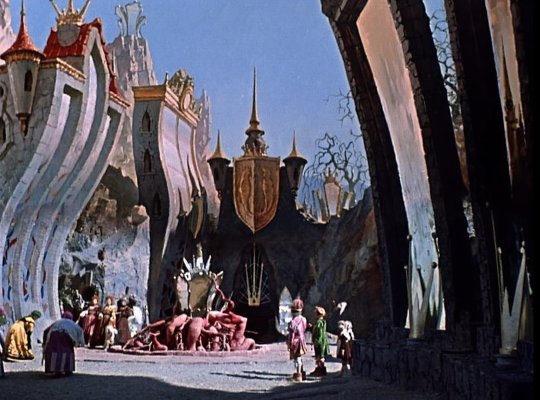



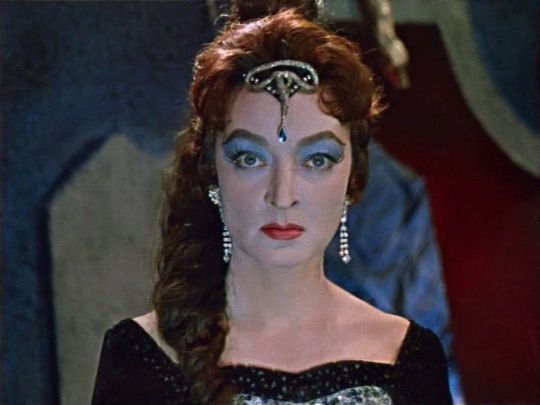
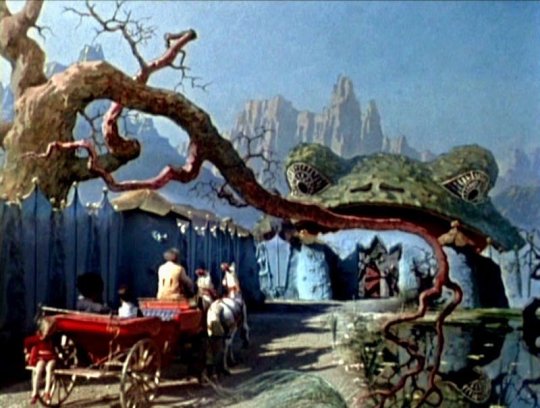
Kingdom of Crooked Mirrors (1963, Rou)
112 notes
·
View notes
Text
ROUND 2A, MATCH 4 OUT OF 4!


Propaganda Under the Cut:
Mija:
She's a Korean mermaid I mean c'mon! Look at her design!
The Little Mermaid:
It’s a s story with the ending left with two interpretations- one of the fish and one of the humans. I think it’s really creative and also just immensely beautiful.
She is tender and tragic. She danced for the prince, even though it hurt a lot. She actually loves her sisters. When the prince fell in love with another woman, she was given a way out by her sisters: she could kill the prince by causing a storm. But she refused and basically sacrificed herself, turning into sea foam, just like in the original. Her character design resembles a fairy, so she actually looks like a creature from another reality, not a human.
An absolutely gorgeous take on the original story. The visuals are just so utterly captivating and I love the way the little mermaid is voiced as well. Just so well done.
#happily ever after: fairy tales for every child#mija#the little mermaid#the little mermaid 1968#soviet animation#little mermaid#fairytale#fairy tale#poll tournament#poll bracket#character polls#polls#round 2#round 2a#the little merpoll
10 notes
·
View notes
Text
Report from the Ministry of Internal Affairs
October 13th, 18:43:36, 1983
He tapped the last key on the typewriter, the arm pressing the character onto the yellow tinged paper. He scrolled up the paper to check what he had written for mistakes, silently scanning each line before it met his final approval, laying it flat on the desk before stamping it, the spring-loaded press stamp creaking in protest at the action. He placed the document onto a small stack of others, similarly stamped and perfectly neat. The man glanced at the time, reading from a small, worn Slava[1] travel alarm clock. It had long since passed when he could leave work, the man having lingered to manage some of the next days work, now it being far too late to remain any longer.
He moved back his chair, lifting the faded wooden seat by the arms as he shifted back, then grabbed the black suitcase he had brought with him and opened it up. He placed the alarm clock in first, folding it back up, his thin fingers rubbing over the false suede that covered the case, before lifting a different set of documents, stamped in red ink or marked by red-white tape, and dropping them into the case with a light fwump as the paper landed on the threadbare red lining. He put in a few more personal effects before snapping the case closed and locking it, idly twisting the dials on the locks out of sequence in a single motion before standing up, opening a drawer in his desk and dumping the first stack of documents into the drawer for safe keeping until the clerks came back in the next morning, locking it with a key he quickly tucked back into the vest pocket of his suit.
Next the man tucked in his chair and stepped around his desk, to the other side of the small room, by the door. He reached over and flicked off the light, the white battalions that had held off the dark suddenly collapsing from the rear as the man stepped out through the door and pulled it shut behind him. He walked out into a small corridor, the walls made of white-painted pre-fab panels that supported an oddly high ceiling for what was typical, giving over three meters of height. He strode down the corridor, his shoes falling silently on the rough blue-grey carpet underfoot, the colour leaning more to the latter tone where it had been worn down by footsteps. He paid little attention to the rooms he passed as he walked through the halls, and made his way to the stairwell at the end of the hall, having never trusted the elevator after it fell down during construction.
He descended the stairs in a rapid but unhurried manner, his footfalls echoing heavily through the concrete stairwell as he descended from the second to the ground floor. At the foot of the stairs opened the ground floor it was a far more open space, with polished marble floors being lined with white concrete, signs displaying the name of the building near what appeared to be a reception, though no one sat at it at this time of day. He marched through the lobby like a train following an invisible track, opening the double doors until he came to the checkpoint he expected.
At the checkpoint, a small white kiosk set slightly down the main path from the building, a guard, dressed in a drab-grey uniform with red trim and long grey-black coat and grey ushanka held out a hand to stop him, which the other robotically did. The guard held out his hand for the documentation the other was already reaching to hand him, both quite practiced in their roles.
“How has your evening been, Comrade Iveshnya?” the guard asked, addressing the man as he looked over his documentation, comparing the face in the documentation before him. Pavel Ilyich Iveshnya[2] was a reasonably tall man, about six foot one, and in his late fifties. He had a long face with a tall brow, topped with black hair combed straight back. The most dominant feature on his face was his beard, it was neat and well tended-to, the clumps of marbled grey-black facial hair almost layered like roof tiles, meeting at a point about five centimetres below his chin. You could never see his mouth, hidden behind his somewhat trapezoidal moustache, leaving you with only his dead-fish eyes to inform you some detail of his mood, lest you could parse through the minutiae of his tone.
He was wearing a black suit, the jacket single breasted and double vented with matching pleated trousers, over a white shirt covered with decorated patterns on the placket and the collar, a black tie falling long across his front. On his lapel there was a soviet star badge, denoting his membership of the party, along with a badge depicting his service to the MVD[3].
“Fine, thank you, Comrade Shurokov,” the man replied in a dull, flat tone, akin to striking cast iron, reaching for his documents as he did, knowing that Shurokov would have finished his inspection. Everything had been in order, as it always was, the guard then moved to check Iveshnya’s suitcase, leafing through the documents inside to check for contraband or restricted documents. As usual, he found nothing an handed back the suitcase.
“Everything appears to be in order,” he stated in an official drone before opening the gate to allow the man through. Iveshnya nodded to him and continued on through the gate, Shurokov’s partner, a burly woman with perfume stronger than vodka and a personality to match called out,
“Have a good evening, comrade supervisor!”
“Thank you!” he called back in a loud but level tone, walking down the pale stone steps that dropped down onto the street. He strode down it, the chill night air walking along with him, a familiar friend to the man, occasionally glowing from the irregular light of streetlights, shining on the half-finished tram tracks in the centre of the road or the glistening cables overhead, blanketed in thin frost. The street was flanked by building sites, great, fantastical projects in varying states of completion, flanked by tall Breznevka’s[4] the bland buildings standing like droll monoliths over the soon to be fantastical structures in the foreground. [expand more when you have the book numnuts]
He didn’t look at the skeletal structures as he walked, continuing on down the long street as the sound of his footsteps echoed through the night air. He came to a well dressed building, single storied but long across the street, with triangular framed pillars supporting the roof, raised at the face and rear, done of clean white stone, mosaic murals depicting scenes of scientists workers and soldiers set between the pillars on the wall behind. He walked up to the door, a white sign bearing blue Cyrillic reading, ‘метро’, showing the main metro station of Nizki-Gorod[5]. He walked through, the building half-lit at this late hour, the wide lobby empty, along with the café that adjoined it, its blacked out inside staring out into the lobby to the ticket offices opposite, similarly abandoned. Pavel strode over the tiled floor, the grey stone dusty and dry underfoot, walking directly over to a set of three stairs, ringed by white bannisters and set in the middle of the floor, and descended them, the steps fine paint slightly marred even after what little use it had seen by the local builders, soldiers and myriad workers already coming to the soon-to-be city.
The platform was well not well lit, with a tall, vaulted ceiling done in a style reminiscent of the Moscow metro, one of the few allowances to Stalinist[6] stylings in the city, the walls painted with pinkish plaster, white stone pillars standing on the wall all appearing rather dark and unnerving to most, not improved by the half-built state the actual platform had been opened in, parts of the platform simply being scaffolding over the pitch black stone below.
He stood near the centre of the platform, on the periphery of one of the few working lights to his left, checking his watch for the time, a Pobeda[7] with a black dial, gold hands, a smaller second dial at the ‘6’ position, and green numbers, somewhat matching the dark green leather strap, seeing it was now about three minutes past eight, the next train being scheduled for twenty past eight. He stood still, straight backed and stern, waiting for the train. As he waited, he felt a presence to his right. It was one that immediately made itself unwelcome, giving the same sensation of putting your hand too close to something dangerous. He felt it standing to his side, glancing to look at it. Beside himself he saw a tall figure, about two or three foot taller than himself, with an irregular, discordant form, flesh that appeared like the personification of radio static, pitch black with bristling form like a wild, monstrous, wolf standing like a man with glowing white eyes, its limbs long and lanky as it loomed tall over the man, arching down towards the old man.
“Good evening, Comrade supervisor,” they greeted in a pleasant voice, their expression shifting into a sincere smile, cocking their head to the side as they leant down to be eye-level with their superior.
“Good evening Miss. Volkov,” Iveshnya answered, nodding to her in greeting, though his face remained passive. Volkov wore a black suit, much looser than Pavel’s own and adjusted to her odd form, wearing trousers, for warmth along with her own preferences, a plain white shirt worn underneath. She wore no shoes, walking on her bare paws, semi-digitigrade in biology, further increasing her height.
“I rarely see you take the metro sir, are you going somewhere?” she asked in a kind tone, smiling at the man, taking pain to not bare her teeth as she did.
“No, this is my usual train, this is simply an unusual time for me,” he answered flatly. Volkov nodded pleasantly, wating a moment to see if he would continue, straightening back up when he didn’t, politely accepting the end to the conversation. Her superior was not exactly known for small talk. The train came after about ten minutes, the blue 81-series shining its headlamps down the tunnel, illuminating the incomplete station as it slowed, stopping astride the platform. The train was rectangular in appearance, with a flat, squarish face on the 81-717 control cars. It was made of eight cars, including the two control cars at each end. Three of the trailer cars, 81-714’s, were perfectly normal, but the other three, set at the rear of the train, were noticeably taller, giving an extra meter of headspace to the car. It was a special car, used to accommodate those of taller stature, such as Miss. Volkov who was walking over to the cars herself.
There had been some contention over simply standardising on the taller trailer cars for all of the metro cars… but the suggestion was rejected, it being deemed far to expensive by the Ministry of Construction[8] as it required national adjustments to the metro tunnels, even where no-one who needed the cars resided.
Iveshnya glanced at her as she went, stepping into a car himself, the sliding doors pressing shut just after. The interior of the car was reasonably well kempt, though dirty by this time of day. The walls were painted in a cream paint, longitudinal seats set against the wall, the brown leather somewhat matching the dark linoleum floor of the cab. Iveshnya sat down on one of the seats, keeping his suitcase on his lap as he looked out the porthole window opposite, illuminated by the white bar lights overhead.
There was only two other people in the cab, a thin man with one arm and a face wrapped in bandages stained black-blue with some scentless liquid wearing an old style of dress, and a plump babushka[9] wearing a green cardigan over a worn paisley shirt, a kerchief covering her grey head covered with red embroidery that was matched on the cuffs of a pair of slacks she wore, neat red thread done in twisting, almost Celtic patterns.
The train gave a start then steadily accelerated, continuing down the line, leaving the half finished platform behind in the half-darkness it lingered in. The black tunnels whipped past the windows of the car, accompanied by the rhythmic clacking cadence of the steel wheelsets underneath them, the trainset speeding forward. It had to do a loop through the city’s line before it turned around, rushing past the yet unopened stations, desolate with no one to yet serve in the unfinished districts. After the final stop in the line, the trainset began to quicken its pace, not by much, but enough to be noticed for those familiar with it or sensitive to that sort of things. After about three hours of quick speed, Iveshnya stood up, making sure nothing had fallen out of his pockets through the journey, then walked to stand by the door. About a moment later the driver announced they were approaching the next station, Iveshnya’s stop. The train came to a slow but sure stop, the doors sliding open as the man stepped out onto the platform.
It was far less elegant of a construction than the ones before, or at least what they were planned to be. It was single platformed, naturally becoming the bottle-neck of the expanding line, made of blue-white tiles set in hollow squares, two pillars stood just adjacent to the edge of the platform, square in profile, with posters on the inner faces. The ceiling was set low, though still tall enough to accommodate the modified 714’s, and flat, lacking any decoration bar from four red stars in each corner of the ceiling. He walked through the station, hearing the train set off again behind him, the electric whine of the engines echoing slightly behind him as he began to ascend a rather wide set of concrete steps, made so each step was a different colour than the layer before it, either a light or dark grey. The steps terminated near directly onto the pavement, being covered by a prefab shelter, a large glowing clock set on each side of the entrance into the walls of it, declaring the time to be about thirteen minutes past midnight.
Ivehsnya turned right from the shelter entrance, walking at a flat pace. A number of cars, their wipers removed[10], were parked upon the curb, the area around the metro station not being truly built with cars in mind, though not that many could truly afford them, or would risk the price of fuel needed for any serious journey. The skyline that surrounded Iveshnya was of aged Khrushchevka’s[11] of varying types set in blocks, small shops, bars and the like shoved between low-rise apartments surrounding dark courtyards. The city was slightly distinct however in some of the more recent construction, part of a new breed of ideas from the architects [], similar to what was being constructed in Nizki Gorod. Unusual structures of fine construction, grand in near every aspect…
Iveshnya did not live anywhere near these.
He walked through the small city, the unlit streets easy for him to navigate even still. Eventually the streets began to become sparse, the clusters of houses thinning as the salient of a street struck out into the wide grasslands the city lay upon, the open space filled with dark, tall grasses and soulless wildflowers, hushing as a cold, dry wind blew across the darkness. Eventually the silhouette of Iveshnya’s home became clear. It was a five story Khrushchevka, a K-7 most likely, a small shop to its side along with a bus stop on the street. He often took it, but it was being serviced at the moment. A few other similar buildings lay on the perpendicular street at the promontory of the salient, abandoned bar from a few lingering spirits and eldritch creatures.
He walked to the entrance of the building, opening the door and stepping into the foyer. I was lit, though dimly, the almost reluctant light glowing on the blue painted staircase ahead, just wide enough to carry down a coffin. Much of the paint was peeling, a mark of its age along with the clusters of jetsam that blustered in through the door with the wind, or simple mess left by teens who used the stair as a hangout where they could not be easily seen, and succinctly, punished. He climbed up to the third floor, his footfalls echoing slightly up the stairwell. He came to the landing that led to his apartment and walked to the door, unassuming and uniform though the only one that seemed to get any use on the floor.
He pressed the key into the lock, twisting it deftly as he pushed open the door. The hall of the apartment was quite plain, intruded upon by a rack of coats and hats hung up, ready to be used. A cheap rug was laid across the entrance way, a deep red colour with various mechanically woven patterns busying its surface. The walls were white matching the celling overhead, sporting a few lights that illuminated the room. He strode forward, placing his suitcase onto a small cabinet in the living room, set against the small wall. The living room itself was occupied by a large stenka[12] on the leftern wall, the wooden surface of this furniture wall was dark brown. It was stuffed with shelves and compartments, one side with clear glass doors filled with crystal and porcelain tableware, the opposite end housing a radio, a kreslo-krovat[13] a small folding chair with pale square wooden sides and plum coloured upholstery faced it from the right side of the room, a small square coffee table sat between the two. Iveshnya walked over and turned the radio on, letting the volume swell before turning around to walk to his bedroom. It was similarly plain, occupied only by a three-wing dresser, a bed and bedside table, the bed being shoved against the wall, on which a large rug was hung to stop him from laying against the cold concrete in his sleep. He hung back up his suit, relacing his shoes for something softer and grabbing a pair of worn pleated wool trousers, greenish in colour hanging baggily from his waist.
He walked out of his room, taking a detour into the kitchen to grab a bottle of vodka and a sandwich, before flopping down into the chair in his living room. He leant back as he sat, letting his mind swim in the music, alone in the cold apartment, gripping, panicked, the arms of his chair until his knuckles turned almost white, unconsciously counting along with his watch the seconds until day. He poured himself a shot of vodka, drying out his mouth with the stale bread before he swallowed, the chill liquid not offering him much ease. He unfolded the chair, the plum coloured seat laying out like a bed, barely wide enough for a single person, especially with the wooden wings of it that constricted him. But, he didn’t mind the discomfort, falling asleep with a semi-strained expression as the radio continued to loudly play through the apartment, drifting over the two empty beds.
[1] Cлава, lit. Glory. Initially called the Second Moscow Watch Factory, it was the second watch factory in the USSR intended for solely civilian watches in 1924.
[2] Павел Ильич Ивешня
[3] Ministry of Internal Affairs of the USSR was the interior ministry of the Soviet Union from 1946 to 1991. Its main roles, following the separation of control over State security into the KGB as a separate agency, was control of the civilian police, investigation of fraud, maintain civil order and quashing unrest, and a number of other duties.
[4] Брежневка. A general name for a type of buildings that began to be constructed while Leonid Ilyich Brezhnev was leader of the Soviet Union. They are usually constructed from bricks or pre-fabricated concrete panels, with between nine and seventeen floors, with over thirty different varieties being constructed.
[5] Низкий город. A fictional city created for this story. Its literal meaning is Low-city.
[6] A type of architectural style that was employed under the leadership of Joseph Vissarionovich Stalin, also know as ‘Soviet Classicism’ or ‘Stalinist Empire’ style. It drew influence from socialist realism movements along with Gothic styles, and was used mainly on government projects.
[7] Победа, lit. victory, a Soviet watch brand established in the wake of the second world war, with Stalin himself deciding the brand name and order than the first watched be ready by the first year of victory celebration(1946).
[8] The Ministry of Construction (Министерство строительства) was a government ministry of the USSR.
[9] Russian slang referring to an old woman or grandmother.
[10] It was a common practice for Soviet car owners to remove the windscreen wipers from their car while it was parked, or otherwise unattended to prevent their theft, keeping them either in the glovebox or in their apartment until it rained and they became necessary.
[11] Xрущёвка. A general term for a type of building that emerged from the 1960’s under the leadership of then leader of the Soviet Union, Nikita Sergeyevich Khrushchev. The predecessors to Brezhnevka’s, they only reach up to five stories, with some lower, and feature extremely similar construction, as the later high-rises used the same construction guidelines as set in 1963.
[12] A term used to describe a combined cabinet/furniture wall that was relatively common in Soviet apartments.
[13] Кресло-кровать, a fold out chair-bed (Lit. translation), that was common in Soviet interiors.
I'm not Russian so do forgive me. I encourage anyone and everyone who can to correct me or to offer suggestions for monsters to use.
@xatsperesso @toomuchhobbies-toolittletime @guesst @truegoist @theriu @adanaac @hiddenfolk @sleepy-gry
Part II
#I must firstly apologize as this is technically being released in a un-ready state as some description and two references have been omitted#due to me currently lacking the book that I intended to reference.#I plead for you to forgive me and enjoy it at its current state#original writing#creative writing#writing#writers on tumblr#Report from the Ministry of Internal Affairs#yokai#mosters#fairy tales#soviet#HMAD
15 notes
·
View notes
Photo


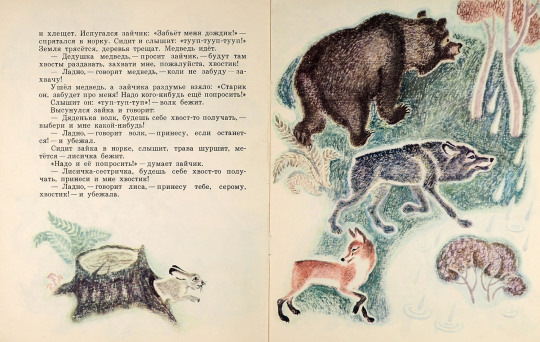
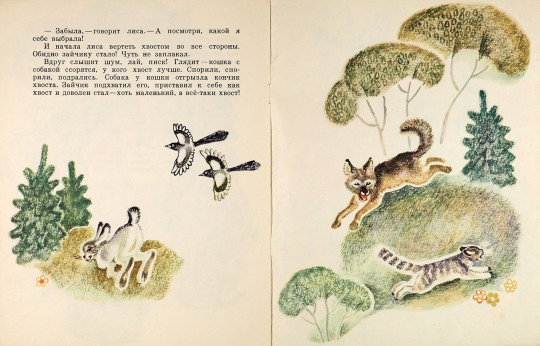
Russian folk tale “Tails” illustrated by A. Aseyev (1980)
606 notes
·
View notes
Text
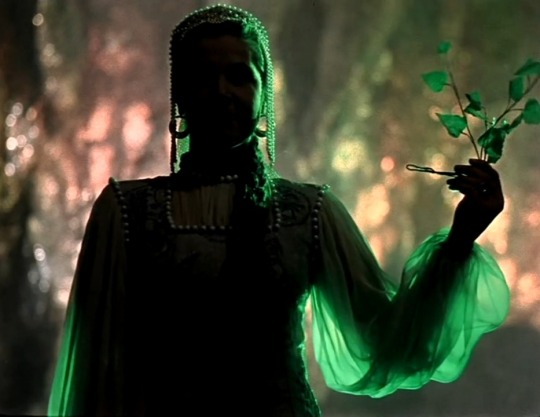
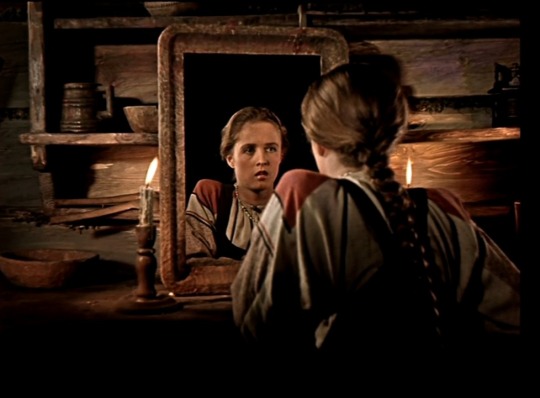
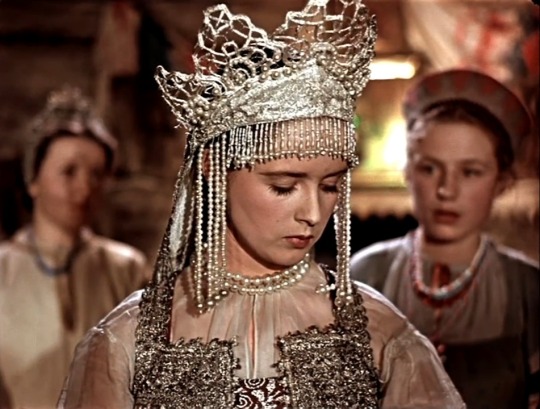



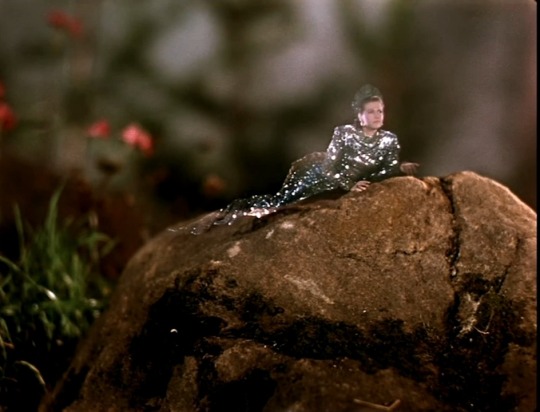
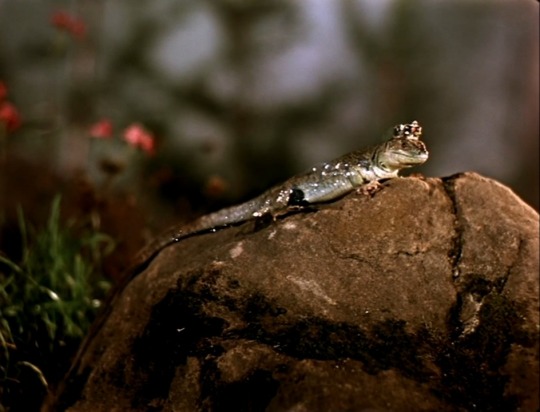
The Stone Flower by Aleksandr Ptushko, 1946
#fantasy movies#the stone flower#aleksandr ptushko#fairy tales#fairy tale movies#1940s cinema#romantic movies#1940s movies#soviet movies
7 notes
·
View notes
Text
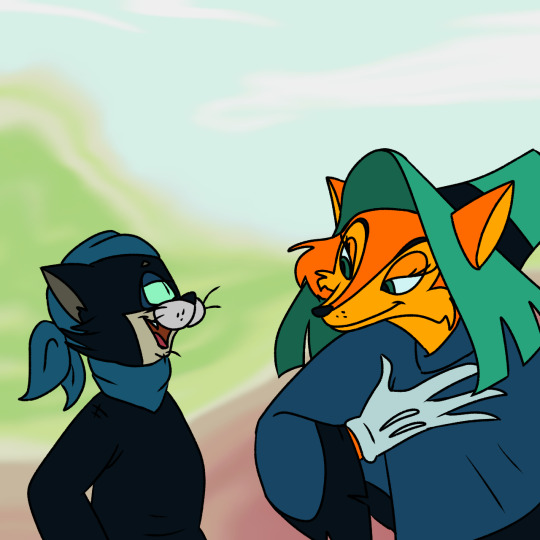
Wooden boy
#art#fanart#fan art#cartoon#fairy tales#old cartoons#au#soviet cartoon#soviet cartoons#russian cartoon#buratino#pinocchio#disney#disney style
12 notes
·
View notes
Text
Фильм: Алиса в Зазеркалье
Movie:Alice through the looking glass


#film#soviet animation#soviet cartoons#soviet cinema#slavic#slavic cinema#fairy tales#alice in the wonderland#Алиса в стране чудес
74 notes
·
View notes
Text
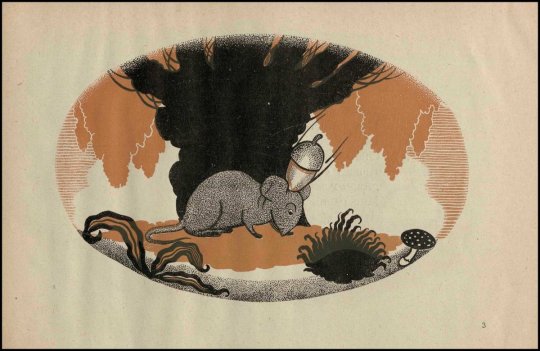

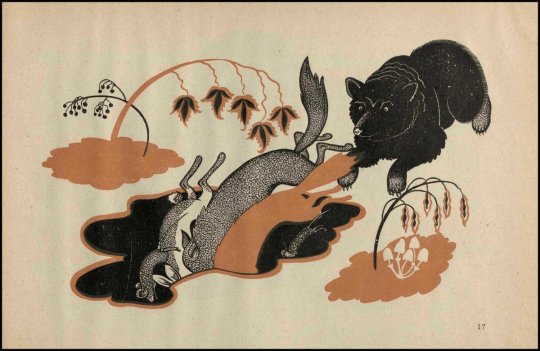
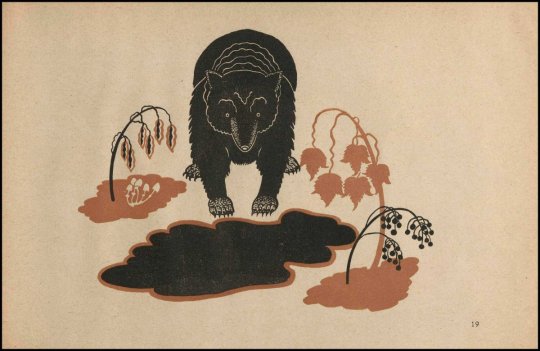

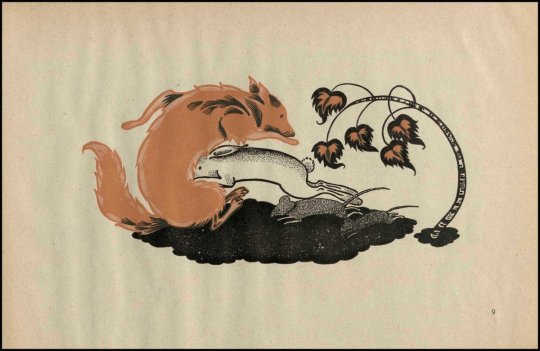
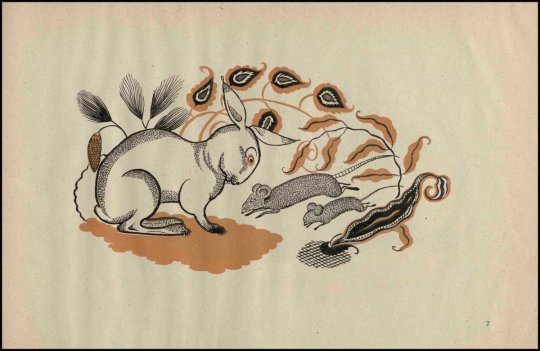
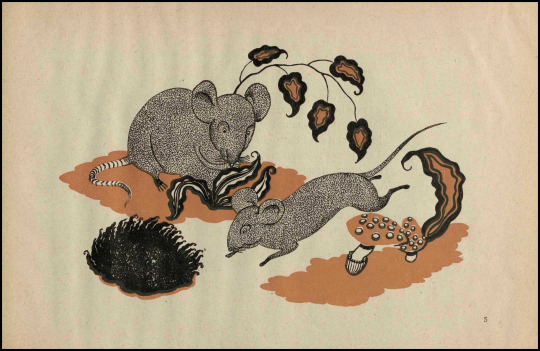
"How the Sky Fell" written by Nikolai Zilov and illustrated by Boris Pokrovsky in 1923.
#mouse#mouseblr#bear#wolf#fox#hare#mushrooms#Soviet art#fairy tales#art#animal art#traditional art#<3
20 notes
·
View notes
Text
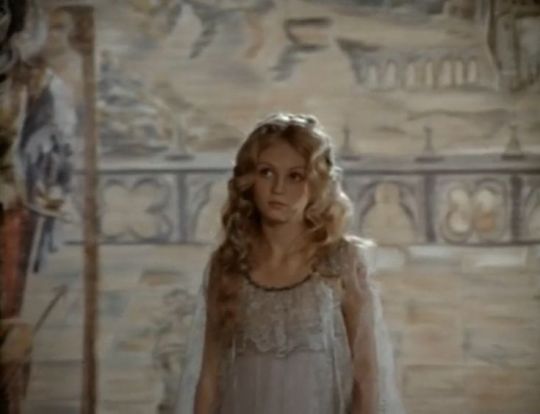

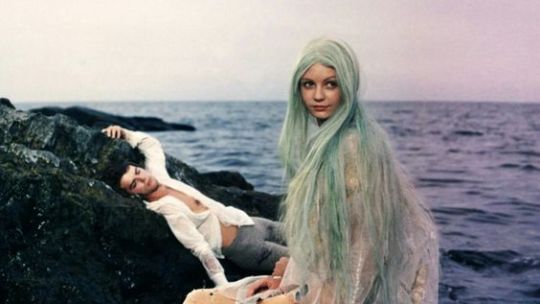
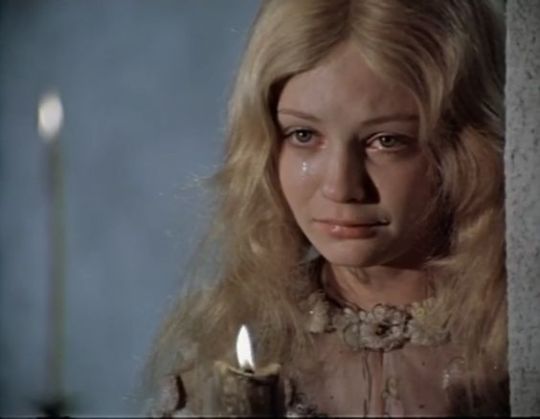
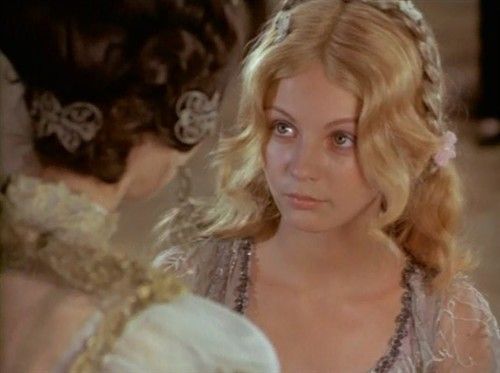
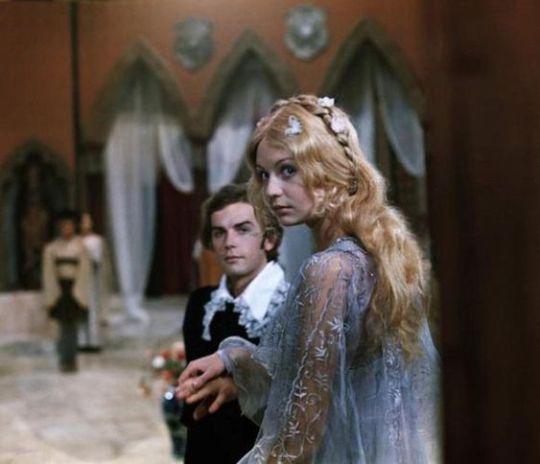
Русалочка (1976)/The Little Mermaid (1976)
11 notes
·
View notes